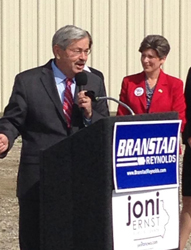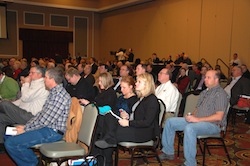A new study from the Society of Automotive Engineers (SAE) has called the Environmental Protection Agency’s (EPA) E15 emission testing “flawed”. Others agree with the findings including the Urban Air Initiative (UAI) and the Energy Future Coalition (EFC). The SAE reviewed EPA models that are used to determine emissions from various fuel blends, known as “match blending”. The procedures were found by the SAE to show skewed results and the authors state has produced emission increases that are “incorrectly attributed to ethanol”.
The paper focuses on the fact that modification of gasoline blendstock composition in preparing ethanol-gasoline blends has a significant impact on vehicle exhaust emissions. In “splash” blending the blendstock is fixed, ethanol-gasoline blend  compositions are clearly defined, and effects on emissions are relatively straightforward to interpret. In “match” blending the blendstock composition is modified for each ethanol-gasoline blend to match one or more fuel properties. The effects on emissions depend on which fuel properties are matched and what modifications are made, making trends difficult to interpret.
compositions are clearly defined, and effects on emissions are relatively straightforward to interpret. In “match” blending the blendstock composition is modified for each ethanol-gasoline blend to match one or more fuel properties. The effects on emissions depend on which fuel properties are matched and what modifications are made, making trends difficult to interpret.
According to Steven VanderGriend, Urban Air Initiative Technical Director, the SAE paper helps make the argument UAI has made that splash blending higher volumes of ethanol on to finished E10 not only fails to raise any emissions but serves to improve emissions by diluting sulfur and aromatics, along with reducing the current non-regulated ultrafine particulates emissions. Also, by using ethanol’s octane potential, the greatest CO2 and mileage benefits can be achieved by the auto industry.
“This paper can serve as an important tool to correct the MOVES (Motor Vehicle Emissions Simulator) model that EPA requires states to use when estimating air quality impacts of motor fuels,” said VanderGriend. “As an independent source, the auto industry experts who were involved in this study are validating the concerns we have had for quite some time now.”
“In fact,” VanderGriend continued, “we are very excited with regard to the conclusion they reached that studies to evaluate the effects of ethanol should be conducted by adjusting the blendstock only as necessary to satisfy ASTM requirements. Blending ethanol at up to 30% volume with an E10 blendstock should generally require no change in composition to meet ASTM D4814.”









